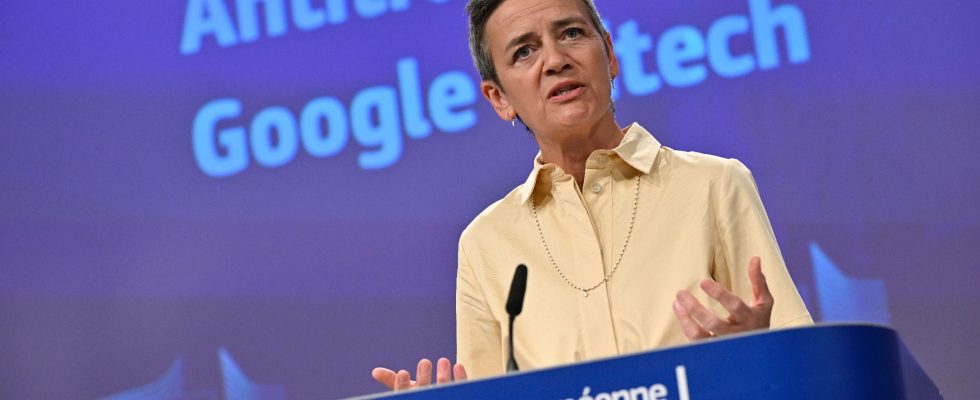This is a new controversy that Europe would have done well: the appointment of the American Fiona Scott Morton to the post of chief economist of the Directorate General for Competition of the European Commission has been confirmed. This Tuesday, July 18, for more than an hour in front of European parliamentarians, Commissioner Margrethe Vestager tried to justify her decision. Convince, put out the fire that has spread in recent days and rotten the Brussels climate. In vain.
“Vestager did not answer any of our questions, did not provide transparency on this appointment process. She stuck to her guns,” regrets Renaissance MP Stéphanie Yon-Courtin. This appointment does not pass. It is not so much the CV of this economist who questions. A seasoned researcher, professor at Yale University, she headed the antitrust division of the US Department of Justice. But she has also, as an independent consultant, advised digital giants like Apple, Microsoft or Amazon. Shocking? Yes, of course, but the practice of these public-private exchanges is – alas! – commonplace, even for senior European officials.
This appointment does not pass because it is a major fault of the Commission. Firstly because it suggests that no European economist would have the capacity to occupy such a position, as if in terms of research, Europe was, there too, dropped. Secondly, and above all, because the Commission did not see or wanted to see that this highly political appointment would lead to an outcry in France, where white-hot public opinion is always ready to fire red balls at a technocratic Europe deaf to the peoples’ anxieties.
But we can also see in this decision the opposition between two visions: that of Margrethe Vestager and Ursula von der Leyen, more free traders, compared to that of France and Commissioner Thierry Breton where the word protectionism does not is more taboo. Last spring, during an interview that Margrethe Vestager gave to L’Express, the gap came to light. The Buy European Act, a form of European preference in purchases, policies and public contracts, championed by Macron? “I am totally against it. We cannot put up barriers at the borders of the EU,” she replied. The creation of a strategic sovereignty fund proposed by Breton? “Don’t you think we already have a lot of funds in Europe? Instead of creating a new one with a lot of money, we should invent something new.”
Behind this controversy, the ideological fractures on the very notion of European strategic sovereignty are cracking the Commission and Europe. And that’s probably the most worrying thing.
